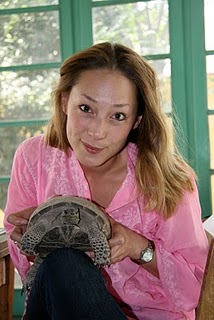There were a few excerpts in Harper’s this month from the blog of Dr. Karen Woo, the British surgeon who was killed, along with nine others, in Afghanistan in early August. She was trekking back to Kabul from the remote region of Nuristan, where she had helped to run clinics for mothers and infants, when her party was ambushed, perhaps by the Taliban, or perhaps by bandits. She was to be married in London in two weeks.
She was a funny, highly irreverent writer, and could be poignant describing the sometimes awful, sometimes rewarding aspects of her work, but was just as likely to be narrating her adventures getting the Pedicure from Hell or trying to purchase gemstones or have a ball gown made. She was obsessed with animals, and often took in stray dogs, cats, rabbits, tortoises …..
For me, this has been a most death-obsessed year, and some gears in the back of my mind have at all times been whirring away, calculating or processing what a life means, what it adds up to, what a death means, what is a good way to die (if there is one.) I always have in the back of my mind a (fictitious) kind of good death, that of a farmer quietly expiring among his hay ricks in (I think) a Wendell Berry story I read some years ago. And the epitome of a bad death–that of Mrs. Blankenship, Don Draper’s sad old secretary on Mad Men: “She died like she lived: Surrounded by the people she answered phones for.”
Certainly the circumstances of Dr. Woo’s death were horrible beyond imagining. But she died while performing selfless and heroic acts. To a stranger, it seems that hers was a wonderful life. And yet those she touched–her fiance, her family, her co-workers, the Afghans she cared for– have every right to be heartbroken and to miss her terribly.
The Karen Woo Foundation has been established to continue her life’s work.
